New Data Reinforce that Access to Justice is an Open Government Issue
Nuevos datos que confirman que el acceso a la justicia es un asunto de gobierno abierto
The open government community has seen growing support for linking justice to open government in recent years, spurred in part by alarming levels of exclusion from justice. According to the World Justice Project’s (WJP) justice gap assessment, more than 5 billion people have one unmet justiceTo address barriers that prevent citizens from having their justice needs met, OGP participating governments are working to expand transparency, accountability, and inclusion into all systems of justi... need, with many confronted by multiples injustices. Efforts to advance justice reforms have also been prompted by the inclusionOGP participating governments are working to create governments that truly serve all people. Commitments in this area may address persons with disabilities, women and girls, lesbian, gay, bisexual, tr... More of justice in the United Nations 2030 Agenda for Sustainable Development under target 16.3, which calls on member states to “ensure equal access to justiceAccessible justice systems – both formal and informal – ensure that individuals and communities with legal needs know where to go for help, obtain the help they need, and move through a system tha... More for all.” Support for linking justice to open government has been further fueled by increased recognition that access to justice underpins poverty reduction, empowers citizens, bolsters anti-corruption efforts, and improves service delivery. These are essential components of the open government agenda.
In response to this momentum, the Open Government Partnership (OGP) just released a paper on Access to Justice, the first in a three-part policy series on justice produced as part of the OGP Global Report. The paper uses data from the World Justice Project’s (WJP) Global Insights on Access to Justice 2019 study to examine legal needs and access to justice in OGP countries, and links findings to relevant commitments in OGP two-year action plans. The WJP dataset provides comparable household survey data on legal needs and access to justice across 101 countries, representing the voices of more than 100,000 people. Data for the 60 OGP countries included in the dataset reveal that:
- Legal problems are common and tend to compound. On average, half (51%) of people in OGP countries experienced at least one legal problem in the last two years. Individuals with one legal problem tend to have multiple legal problems, with disputes related to illness and injury having very strong correlations with employment issues and problems obtaining public benefits.
- Problems with basic documentation and services are significantly more common in poorer countries. Legal problems are unevenly distributed across OGP countries. Those with high poverty rates have a higher prevalence of legal problems – such as basic identification, access to water and electricity, and land titles – that disproportionately burden the poor.
- Only a slight majority of people with legal problems knew where to get legal advice and less than half obtained it. On average, 53% of respondents with legal problems in OGP countries knew where to go for advice and only 41% reported being able to get the help that they needed.
- Self-help and use of expert legal advisors are reinforcing. One in five people in OGP countries got help from sources like the internet, a booklet, or a mobile application. The data also show that people who educate themselves are also likely to use professional legal services.
- Only one in six people turned to an authority to resolve their legal problem. The most common authorities in OGP countries were courts and tribunals (48%), government offices (43%), and police and formal complaints processes (40%).
- Two in five people with a legal problem faced some sort of hardship as a result. Physical or stress-related ill health was the most common hardship in OGP countries, and it was felt disproportionately by women. By contrast, men disproportionately reported problems with alcohol and drugs as they dealt with their justice-related issues.
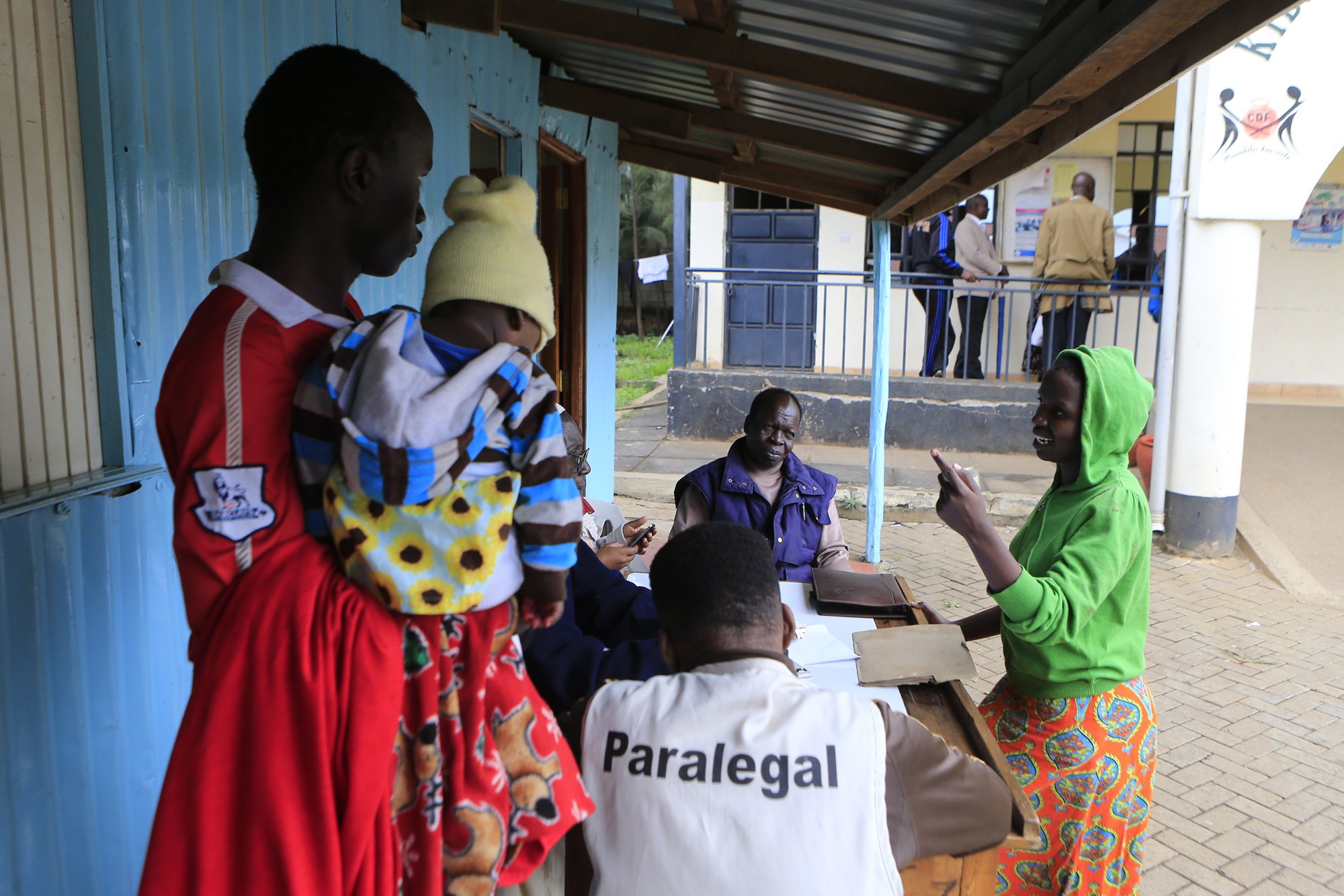
Photo Credit: Aubrey Wade/Namati
These data reinforce that access to justice is foundational to poverty reduction and inclusion, as demonstrated by the prevalence of legal problems related to employment, health, and basic public services. What’s more, many of the key barriers to accessing justice in OGP countries – service delivery, access to information, and legal empowerment – are also essential to the open government agenda.
But this paper does more than paint a picture of the state of access to justice in OGP countries. The open government community can push for justice-related reforms by using the paper as:
- A diagnostic tool for assessing the most pressing legal needs and barriers to accessing justice. In addition to the 30+ aggregate findings presented in the paper, policymakers and advocates can use WJP’s interactive microsite for the study to explore results for their country.
- A framework for crafting appropriate justice interventions. This paper describes 28 commitments in OGP aimed at collecting data on legal needs, enhancing legal capability, improving participation in the justice system, strengthening justice processes, and improving outcomes for those with legal needs.
- An advocacy tool to illustrate that access to justice matters for inclusive development. Justice has traditionally lagged behind other development issues – such as health and educationAccountability within the public education system is key to improving outcomes and attainment, and accountability is nearly impossible without transparent policies and opportunities for participation ... – when it comes to providing empirical evidence of its importance for development. It should come as no surprise then that international aidMore and better information about aid helps partner countries and donor institutions plan and manage aid resources more effectively, parliaments and civil society to hold governments accountable for t... for justice accounts for only 1.8% of total aid flows, as compared to 13% for health and 8% for education. In order to mobilize resources and political will, open government reformers must make the case to governments and donors that access to justice is foundational to both human and economic development. This paper is an important tool for doing just this.
Photo Credit: Reuters / Joe Skipper via AdobeStock
Entre la comunidad de gobierno abierto, cada vez existe un mayor apoyo para vincular el acceso a la justicia con la agenda de gobierno abierto, en parte debido a los niveles alarmantes de exclusión de la justicia. Según la evaluación de la brecha en la justicia que desarrolló World Justice Project (WJP), más de 5 mil millones de personas tienen asuntos de justicia sin resolver y muchos de ellos tienen más de un problema. La Agenda para el Desarrollo Sostenible 2030 en su meta 16.3 promueve el impulso a reformas de justicia, haciendo un llamado a los estados a “asegurar un acceso equitativo a la justicia para todos.” El vínculo entre la justicia y el gobierno abierto se ha fortalecido al reconocer que el acceso a la justicia contribuye a la reducción de la pobreza, empodera a los ciudadanos, impulsa los esfuerzos anticorrupción y mejora la provisión de servicios. Todos estos son componentes fundamentales de la agenda de gobierno abierto.
En ese sentido, Open Government Partnership (OGP) recientemente publicó un documento sobre acceso a la justicia, primera de tres partes sobre el tema de justicia que forma parte del informe global de OGP. Este documento retoma datos del estudio Perspectivas globales sobre el acceso a la justicia 2019, analiza las necesidades legales y el acceso a la justicia en países de OGP y vincula estos hallazgos a compromisos establecidos en los planes de acción de OGP. Los datos de WJP se generan a partir de encuestas realizadas a hogares sobre sus necesidades legales y sobre el acceso a la justicia en 101 países, representando a más de 100,000 personas. Los datos de los 60 países de OGP que se incluyen en los datos revelan que:
- Los problemas legales son comunes y tienden a combinarse. En promedio, la mitad (51%) de las personas que viven en los países de OGP han tenido algún problema legal en los últimos dos años. Además, las personas que tienen un problema legal tienden a tener varios problemas. Por ejemplo, las controversias relacionadas con enfermedades o lesiones están altamente correlacionadas con problemas de empleo y de prestaciones.
- Los problemas de documentos y servicios básicos son significativamente más comunes en los países pobres. Los problemas legales se manifiestan de forma diferenciada en los países de OGP. Aquellos que tienen tasas más altas de pobreza tienen una mayor prevalencia de problemas legales, tales como la falta de documentación básica, de acceso a agua y electricidad y a la tenencia de la tierra. Además, dichos problemas afectan de forma desproporcionada a los pobres.
- Solamente una ligera mayoría de las personas que tienen problemas legales saben cómo obtener asesoría legal y menos de la mitad tienen acceso a ella. En promedio, el 53% de los encuestados que tienen problemas legales en países de OGP saben en dónde conseguir asesoría legal y solamente el 41% respondieron que tuvieron acceso a la ayuda que necesitaban.
- La autoayuda y el uso de expertos legales se refuerzan. Una de cada cinco personas en países de OGP obtuvieron ayuda de fuentes como el internet, un folleto o una aplicación móvil. Los datos muestran que las personas que se informan a sí mismos tienen una mayor probabilidad de contratar servicios legales.
- Solamente una de cada seis personas recurre a una autoridad para resolver sus problemas legales. Las autoridades más comunes en los países de OGP fueron las cortes y tribunales (48%), oficinas de gobierno (43%) y la policía y procesos formales de denuncia (40%).
- Dos de cada cinco personas que tienen un problema legal sufren de algún tipo de dificultad como resultado. Problemas de salud física o estrés son las dificultades más comunes en los países de OGP, sobre todo entre las mujeres. Por su parte, los hombres enfrentan problemas de alcohol y drogas cuando están lidiando con sus problemas de justicia.
Estos resultados refuerzan la idea que el acceso a la justicia es clave con respecto a la reducción de la pobreza y la inclusión, como lo demuestra la prevalencia de problemas legales relacionados con el empleo, salud y servicios públicos básicos. Además, muchas de las barreras clave para el acceso a la justicia en países de OGP – provisión de servicios, acceso a la información y empoderamiento legal – también son elementos clave de la agenda de gobierno abierto.
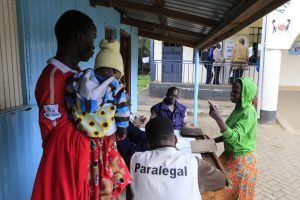
Crédito: Aubrey Wade/Namati
Pero este documento es más que una descripción del estado del acceso a la justicia en los países de OGP. La comunidad de gobierno abierto puede impulsar reformas relacionadas con la justicia utilizando la publicación como:
- Una herramienta de diagnóstico para evaluar las necesidades legales más urgentes y las barreras que existen con respecto al acceso a la justicia. Además de los más de 30 resultados agregados que incluye la publicación, los tomadores de decisiones pueden utilizar el micrositio interactivo de WJP para explorar los resultados en su país.
- Un marco para diseñar intervenciones adecuadas en materia de justicia. La publicación describe 28 compromisos de OGP diseñados para recolectar datos sobre las necesidades legales, fortalecimiento de las capacidades legales, una mayor participación en el sistema de justicia, el fortalecimiento a los procesos de justicia y obtener mejores resultados para las personas que tienen necesidades legales.
- Una herramienta para demostrar que el acceso a la justicia es importante para el desarrollo incluyente. Históricamente, se ha generado menos evidencia empírica sobre la importancia de la justicia para el desarrollo que sobre otros temas, tales como la salud y la educación. No sorprende que la asistencia internacional para la justicia representa solamente el 1.8% del monto total de los flujos de asistencia, mientras que la salud abarca el 13% y la educación el 8%. Para canalizar más recursos y mayor voluntad política, los reformadores de gobierno abierto deben reunir argumentos que demuestren a los gobiernos y a los donantes que el acceso a la justicia es clave para el desarrollo humano y económico. Esta publicación puede ser una herramienta muy útil para esta tarea.
No comments yet
Related Content
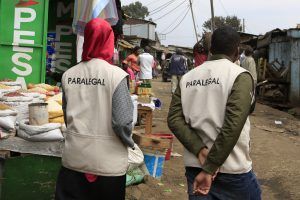
Justice Policy Series, Part I: Access to Justice
Explore how justice reformers can better connect with OGP and its processes as a strategy to implement change.
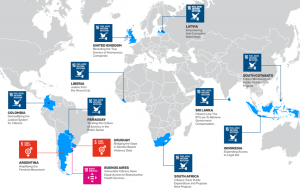
Implementing SDG16+ Through the Open Government Partnership
The challenge of building peaceful, just and inclusive societies is at the heart of the SDGs and OGP can be a vital partner to achieve these goals.
OGP Fact Sheets
Explore global progress and member-level examples of open government work in each of the selected policy areas and various regions.

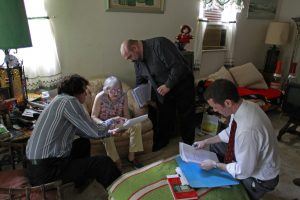
Leave a Reply